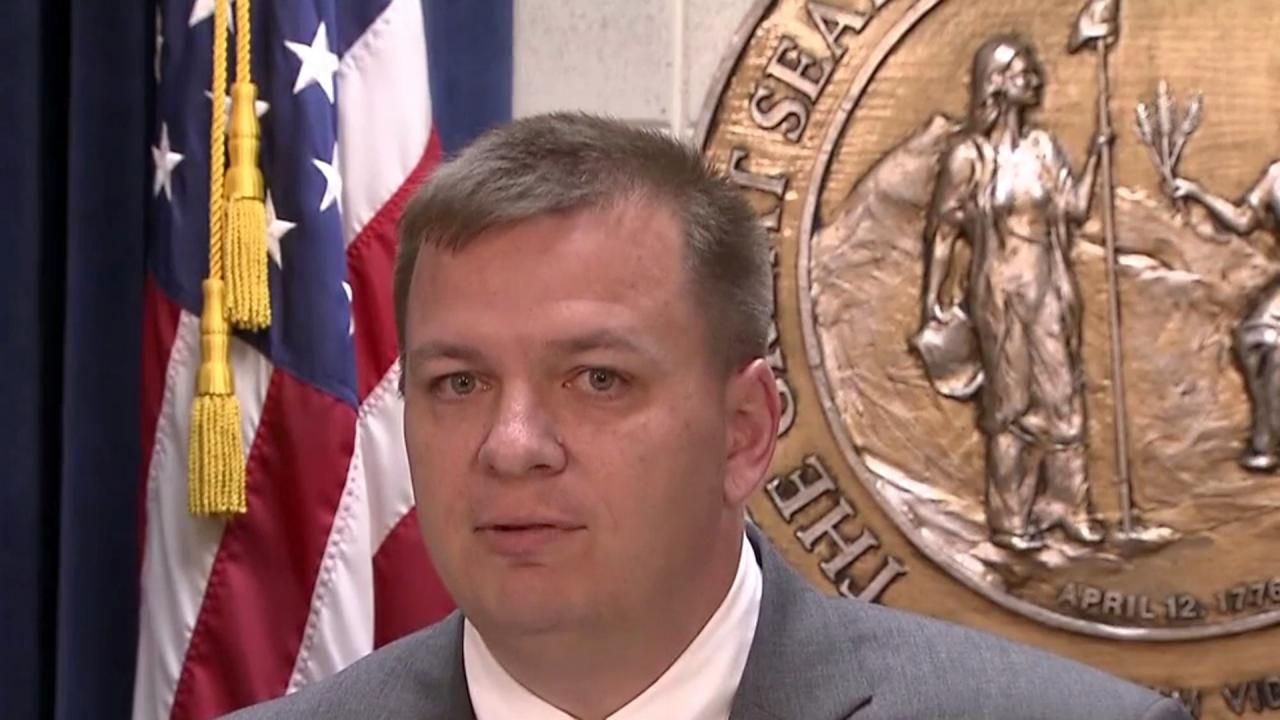North Carolina Supreme Court dismisses motion asking justice to recuse from Leandro lawsuit involving father

North Carolina Supreme Court Associate Justice Phil Berger Jr. doesn’t need to recuse himself from a major education lawsuit, the court ruled Friday.
Berger’s father, Senate President Phil Berger Sr., is an intervenor in the 30-year-old lawsuit, Hoke County Board of Education v. State of North Carolina, known as the Leandro case for one of the plaintiffs.
That lawsuit is back before the North Carolina Supreme Court, with potentially billions of dollars for public schools on the line. In 2022, the state Supreme Court ordered hundreds of millions of dollars toward schools, but implementation of that order has been paused while parties continue to file petitions related to the case.
The lawsuit concerns whether North Carolina’s schools are adequately resourced — through funding, policy or other means. Rulings so far have determined they are not and have ordered the state to fix it, but lawmakers have argued court rulings shouldn’t apply statewide.
Justices are set to hear arguments about jurisdictional questions in the case Feb. 22.
How the court rules could determine the fate of a larger, more than $5 billion plan to comply with court findings through 2028.
Plaintiffs in the case — families and school boards in five lower-income counties — had asked Berger to recuse himself from the case, citing his familial relationship to an intervenor.
But the request “offers no new grounds” after a similarly rejected request in 2022, Justice Trey Allen wrote in the opinion issued Friday. When a petition doesn’t raise new questions, it’s impermissible in court, Allen wrote.
Associate Justice Allison Riggs, with Associate Justice Anita Earls joining, dissented.
In her opinion, Riggs cited the state's judicial code of conduct, which urges judges to recuse themselves when a family member is involved in the case.
Earlier this month, Justice Berger asked the court to decide whether he needs to recuse, although he also noted he did not believe any new issues had been raised. He did not participate in the deliberations leading up to the Friday order, nor sign onto the order.
Earls has also faced calls to recuse because she once briefly worked on the case for an intervenor, Charlotte-Mecklenburg Schools, in 2005. She declined to recuse herself late last month in a 13-page filing, citing her limited involvement years ago and a lack of new evidence for the recusal request. The filings she participated in are not related to the issues being appealed now, she argued.
“I am confident that my work with an organization that represented Penn-Intervenors in a distinct matter almost twenty years ago will not impair my ability to impartially decide this appeal,” Earls wrote in her decision Jan. 31.
Legislative-intervenors, including Senator Berger, had asked Earls to recuse herself.
Both justices faced similar requests to recuse themselves back in 2022 and decided not to. Back then, both declined to recuse.
But rather than decline to recuse himself this time, Justice Berger asked the Supreme Court to consider the plaintiffs’ request. He wanted to err “on the side of prudence,” according to his filing.
The court has a 5-2 Republican majority over Democrats, with Berger in the majority and Earls in the minority. When the court last ruled in the case, in November 2022, the court had a 4-3 Democratic majority over Republicans. Part of the dispute before the court now is over the extent to which the court is being asked to re-hear and re-rule on matters decided in 2022 decision.











